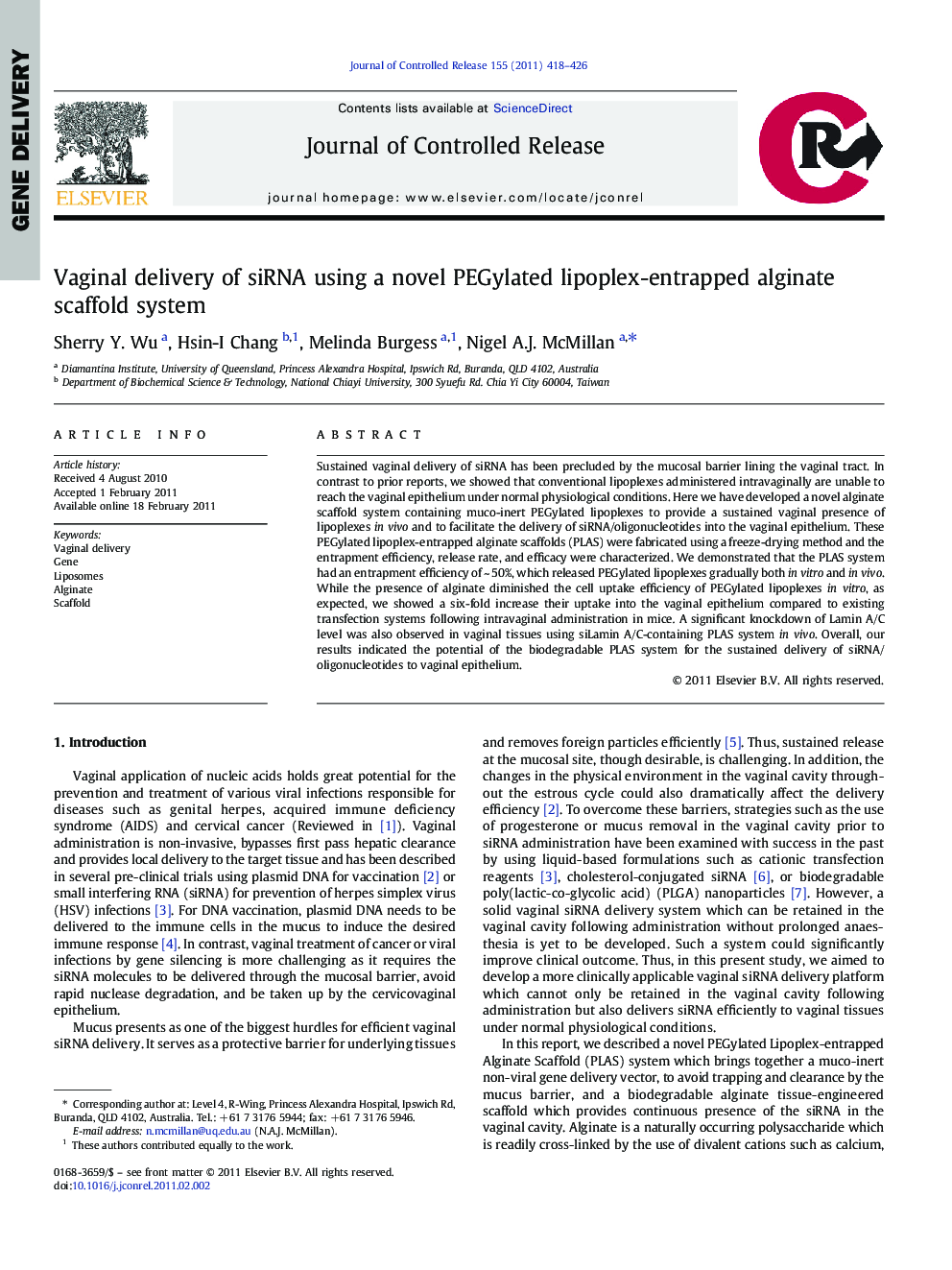| Article ID | Journal | Published Year | Pages | File Type |
|---|---|---|---|---|
| 1424880 | Journal of Controlled Release | 2011 | 9 Pages |
Sustained vaginal delivery of siRNA has been precluded by the mucosal barrier lining the vaginal tract. In contrast to prior reports, we showed that conventional lipoplexes administered intravaginally are unable to reach the vaginal epithelium under normal physiological conditions. Here we have developed a novel alginate scaffold system containing muco-inert PEGylated lipoplexes to provide a sustained vaginal presence of lipoplexes in vivo and to facilitate the delivery of siRNA/oligonucleotides into the vaginal epithelium. These PEGylated lipoplex-entrapped alginate scaffolds (PLAS) were fabricated using a freeze-drying method and the entrapment efficiency, release rate, and efficacy were characterized. We demonstrated that the PLAS system had an entrapment efficiency of ~ 50%, which released PEGylated lipoplexes gradually both in vitro and in vivo. While the presence of alginate diminished the cell uptake efficiency of PEGylated lipoplexes in vitro, as expected, we showed a six-fold increase their uptake into the vaginal epithelium compared to existing transfection systems following intravaginal administration in mice. A significant knockdown of Lamin A/C level was also observed in vaginal tissues using siLamin A/C-containing PLAS system in vivo. Overall, our results indicated the potential of the biodegradable PLAS system for the sustained delivery of siRNA/oligonucleotides to vaginal epithelium.
Graphical AbstractFigure optionsDownload full-size imageDownload as PowerPoint slide
